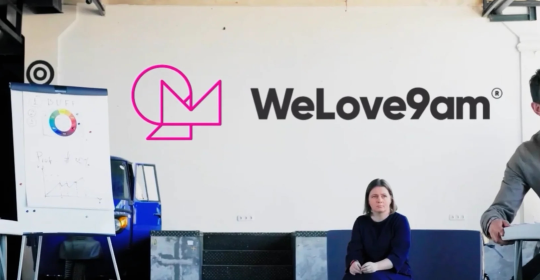Monsterís European Online Poll reveals the Irish nearly top the poll when it comes to socialising with their workmates!
Fancy a drink after work?
According to the latest Monster Meter, the majority of European workers do like socialising with their work colleagues. Beaten only by the UK, the Irish come a close
to second when it comes to drinks after work!
56% of Europeans are happy to go out with colleagues at least once every few weeks with 7% of them socialising with work several nights a week.
11,451 votes were cast on Monsterís sites across 13 European countries between the 17th and 31st March. The Monster Meter asked, ìHow often do you socialise with your colleagues?î revealing:
44% said: ìNever.î
39% said: ìOnce every few weeks.î
10% said: ìOnce a week.î
7% said: ìSeveral nights a week.î
In Ireland, on Monster.ie the results show:
32% said ìNever.î
40% said ìOnce every few weeks.î
18% said ìOnce a week.î
10% said ìSeveral nights a week.î
The ìbeer after work cultureî of the UK and Ireland is reflected in the findings, as one in ten British and Irish workers said that they socialised with colleagues ìseveral nights a weekî. The only country with a higher score in this category is Norway, with 24%.
On the contrary, Denmark (with 64%) and Italy (with 59%) score highest in the ìneverî category. Other Mediterranean countries such as France and Spain rarely tend to socialise with their colleagues. Coincidentally, Spanish and Italian workers appear to work longer hours than their fellow
European counterparts, with a substantial quarter of Spanish workers claiming to work more than 50 hours per week (Source: Monster Meter, February 2003). Having spent a significant part of the day in the office may prompt the desire to leave the working environment behind when the end of the working day comes.
Life-style and cultural customs influence people choices when it comes to their free time. Whereas Ireland, Nordic countries and the UK have a thriving pub culture, the Mediterranean culture is more family-oriented with
workers often working in the same town where they grew up or studied.
Family, childhood or university friendships compete with work colleagues and in countries where employment relocation is scarce; there is no need to build up new relationships at work.
ìYoungerî offices or ìfunkyî industries such as advertising are renowned for socialising more. The profile of the industry and the office culture play a significant role in expanding social circles with work colleagues and so
does office location. Workers in big cities, such as London or Berlin tend to enjoy a more hectic social life than workers who are based in industrial parks or small cities. The entertainment and leisure offerings of big towns surely appeal to workers who want to wind down after office hours.
Alan Townsend, Managing Director Monster.ie commented: ì
As people now spend longer than ever before at work its no surprise that this is where social relationships are being formed. At the end of the working day you can unwind and share a joke or a rant with someone who
really understands. These social relationships now form a key part of work culture and can be a key attraction for people looking for the ideal company to work for.Its not something that has featured yet in company literature
but perhaps in future we will see pictures of the local pub rather than the company chairman.
Irish Work hard, but play harder!

Monsterís European Online Poll





